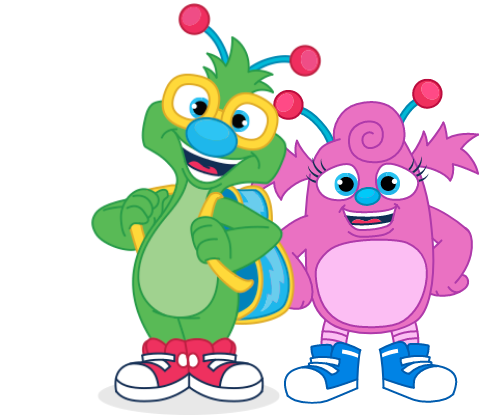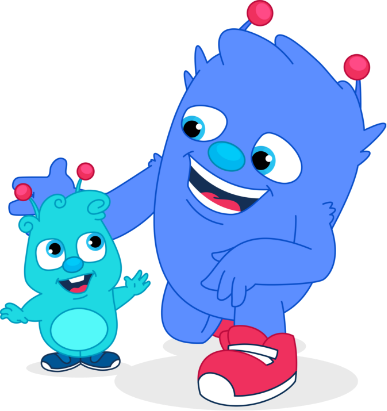July 19, 2018
The Importance of Water Play
 contributed by: Alison Tweedie, Education Specialist
contributed by: Alison Tweedie, Education Specialist
What is your favorite summertime childhood memory?
I asked this question during a professional development training recently. The majority of teachers responded with fond memories of playing in pools, jumping in puddles, running through sprinklers and floating on rivers and lakes. Most responses had something to do with water.
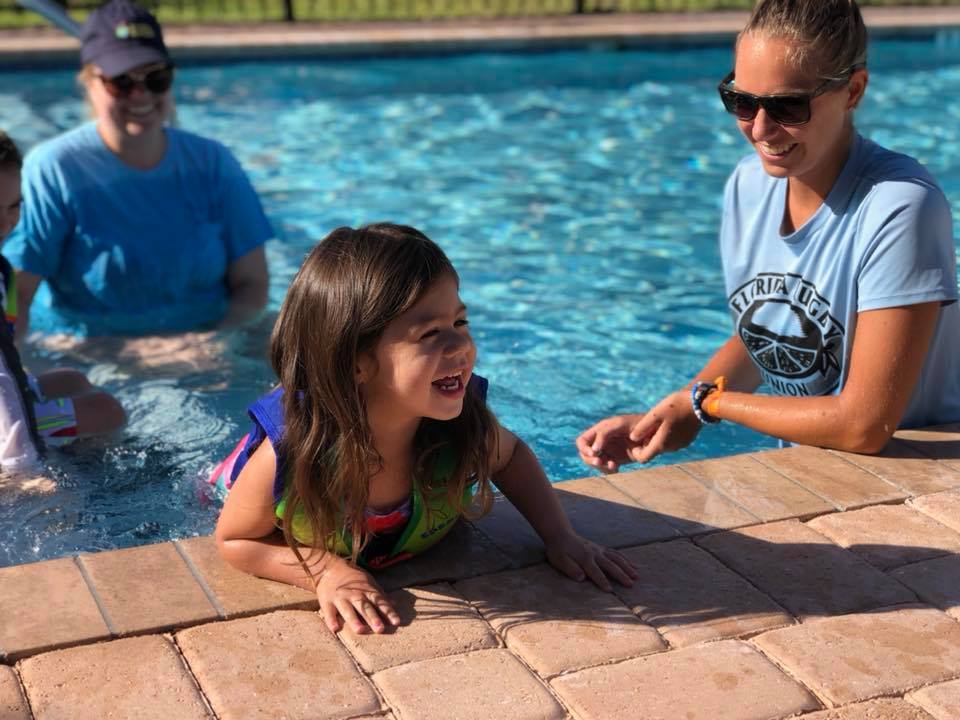
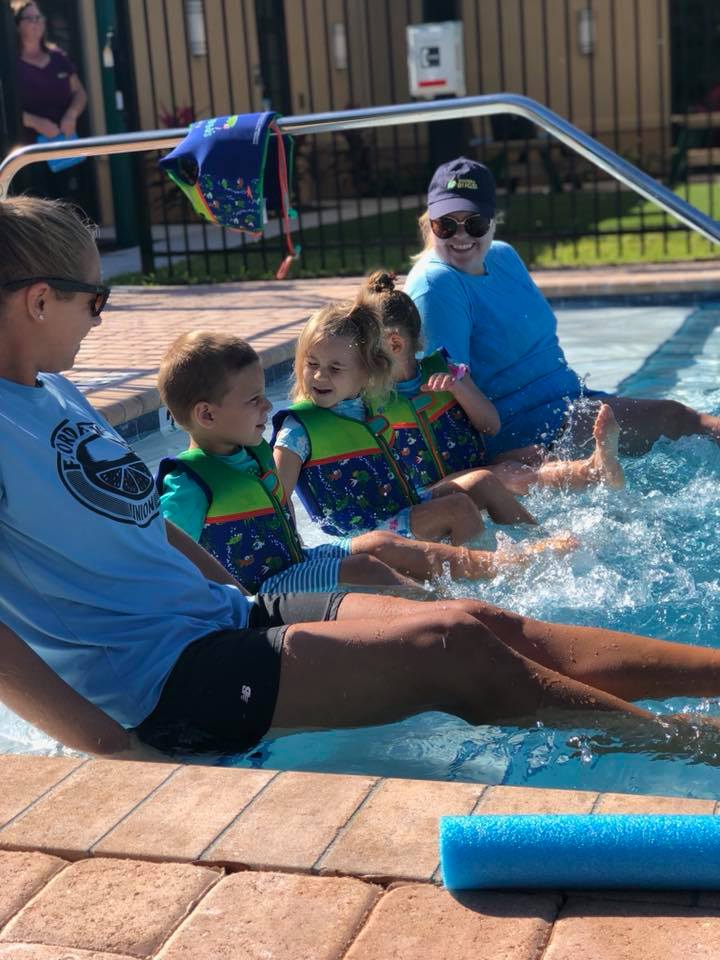
Why do we have such memorable connections to water?
Here in New York, it may be because we can only play outside in water (comfortably) for about three months a year. But I think there’s more to it than that.
Water is an integral part of our lives. Our bodies are made mostly of water. We need to drink water to survive. Water cleanses us physically, spiritually, and emotionally.

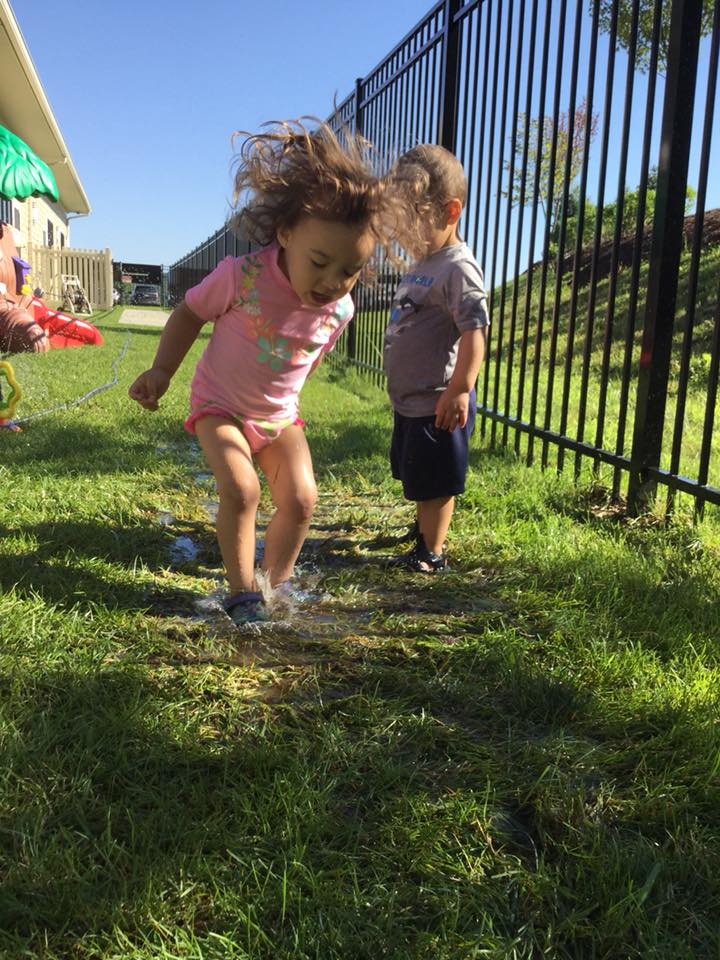
Water also serves as a keen learning tool, one that supports the development of the whole child in all four learning domains: Physical, Social/ Emotional, Literacy/ Language, and Cognitive. Aside from washing hands and flushing toilets (something any early childhood professional will tell you children are fascinated to experience over, and over, and over again), there are ample learning opportunities that become available when children are encouraged to repeatedly explore its wet, watery, elemental properties through play.
Physical
These characteristics are easy to spot. As children run, jump, skip, hop, roll, push, throw, paddle, kick, etc. in and around water they are developing gross motor muscles. These “large muscles” develop first and bring about the development of smaller muscles in the wrists, hands, and fingers (called “fine motor”). These smaller muscles are necessary for the ability to hold a utensil and, later on, write. That makes water play an important pre-writing activity!
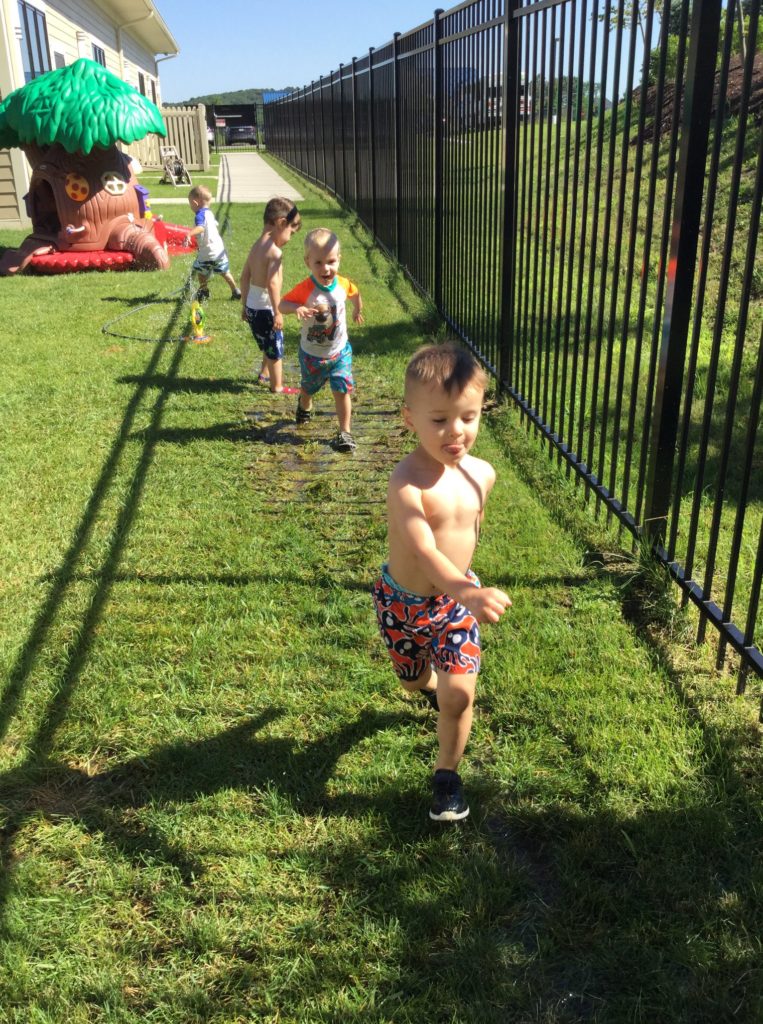
Social/Emotional
When playing with others, social skills such as turn taking, sharing, cooperation, negotiation and collaboration are put to practice. Water can be a natural stimulant or relaxant depending on how children engage with it—either way it provides the opportunity for important self-regulation and concentration.
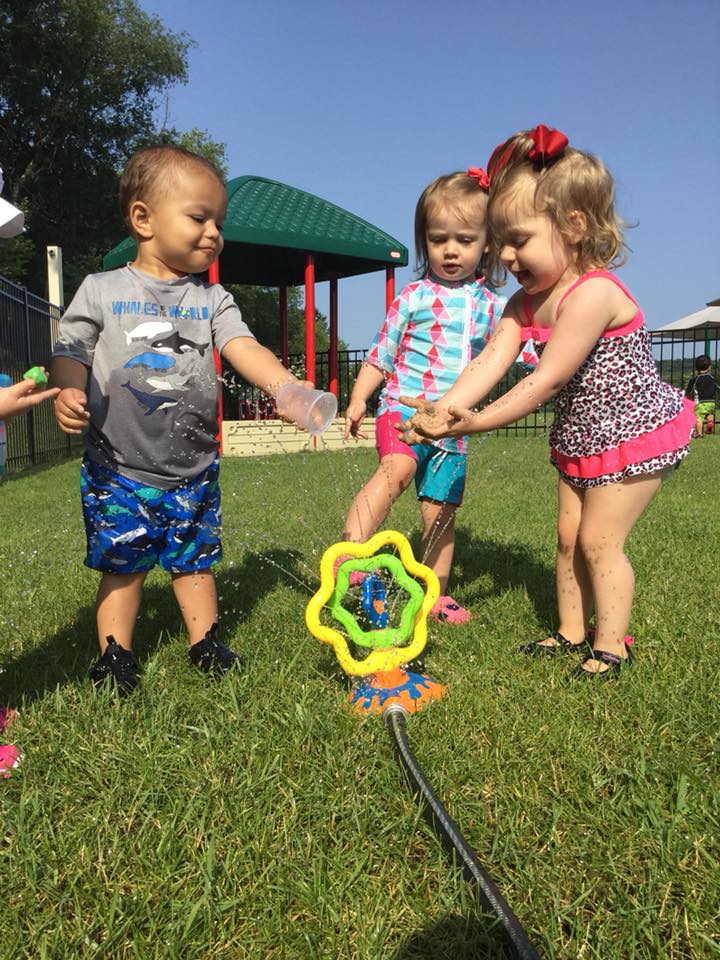
Literacy/ Language
Water play gives children a hands-on, meaningful, and engaging opportunity to connect language with experience. They see, hear, and feel words like: wet, cold, warm, squishy, splash, plop, drip, and ripple. Often they have so much fun they want to read or write about water, which leads to pictures, dictations, and conversations. Ultimately, they acquire more language as they ask questions and tell stories about their experiences.
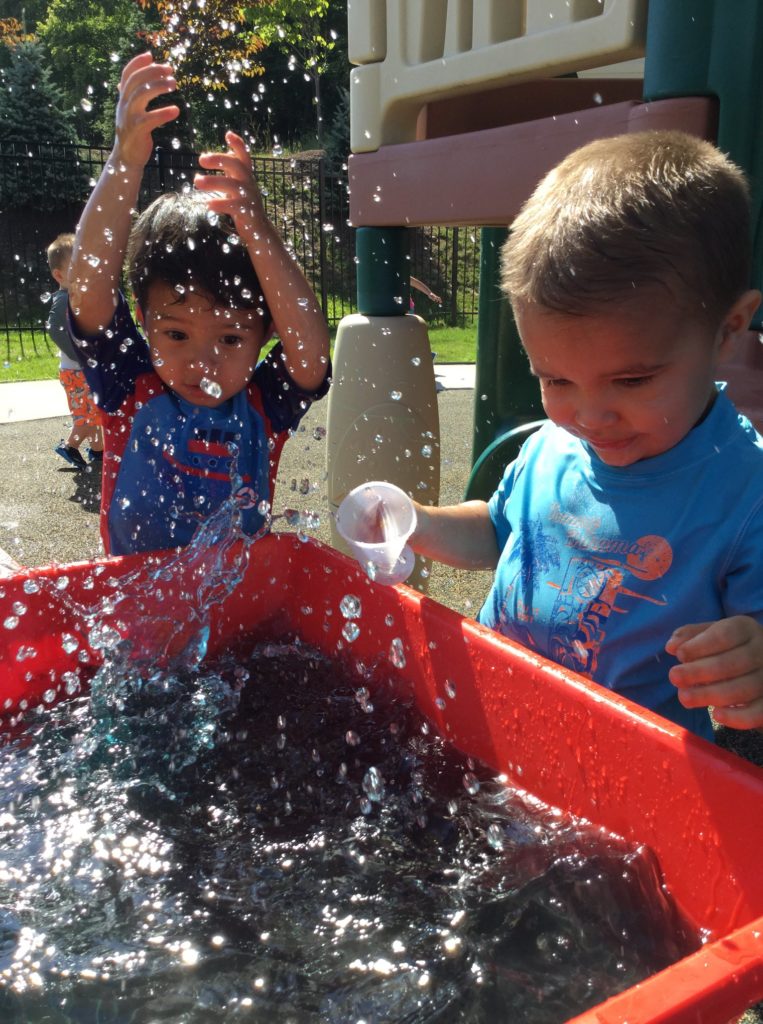
Cognitive
Science concepts are prevalent in water play. Physics, chemistry, and biology all intertwine as children observe the flow and motion of water, gravity’s effect on water, and water’s change of state in the sun. They mix dirt into their water creating a solution (chemistry) and may observe water droplets on plants and pets/animals (cohesion, observation of plant and animal life). There is an overall exploration of cause and effect. There are very strong math concepts introduced such as measurement, equivalence and volume. Children naturally begin to make connections as they observe comparisons and use comparative language such as more/ less, same/ different, empty/ full, before/ after.
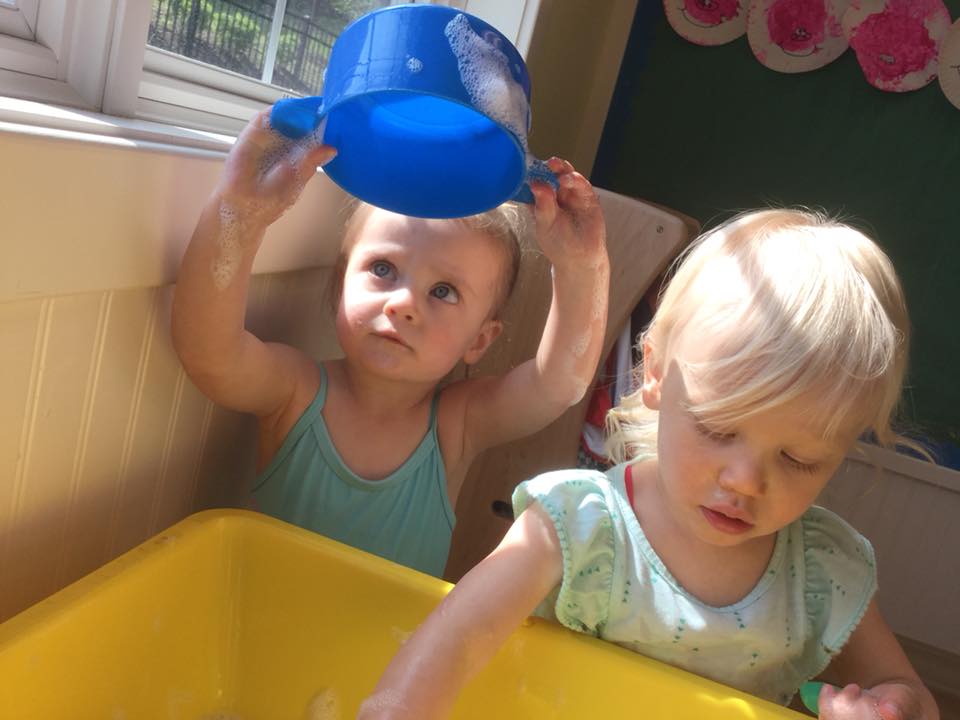
At Doodle Bugs!, water play is supported with ample outdoor time, outdoor play activities and curriculum extension through water play. Water play extends year round with water-based sensory experiences in classroom sensory bins.
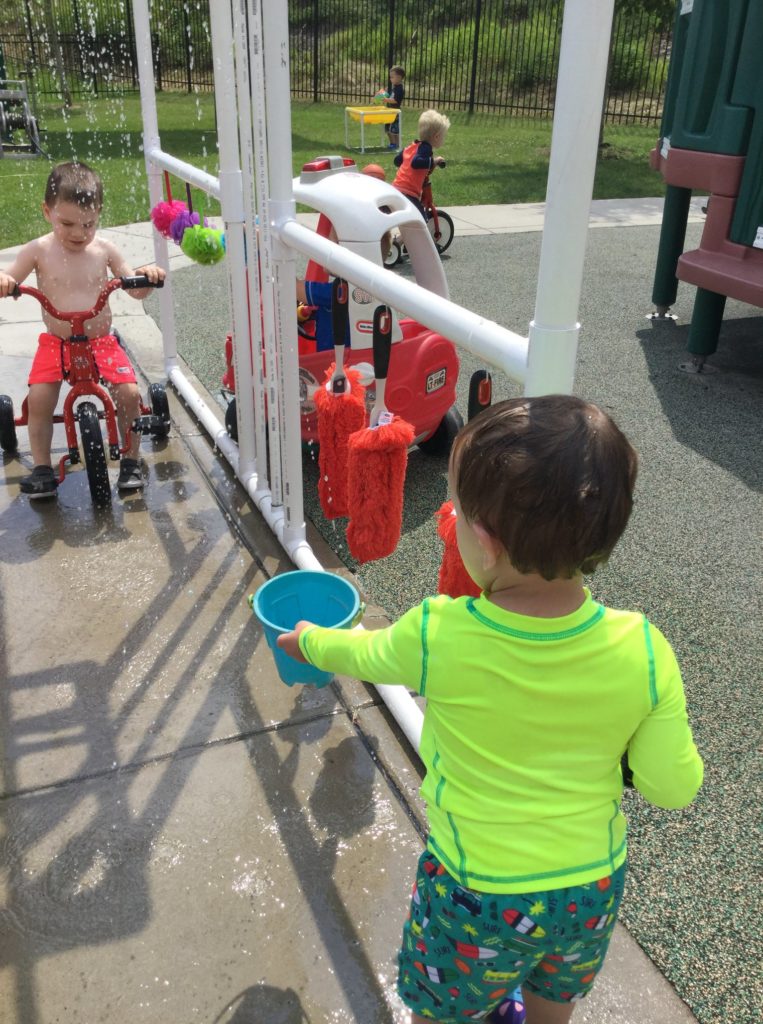
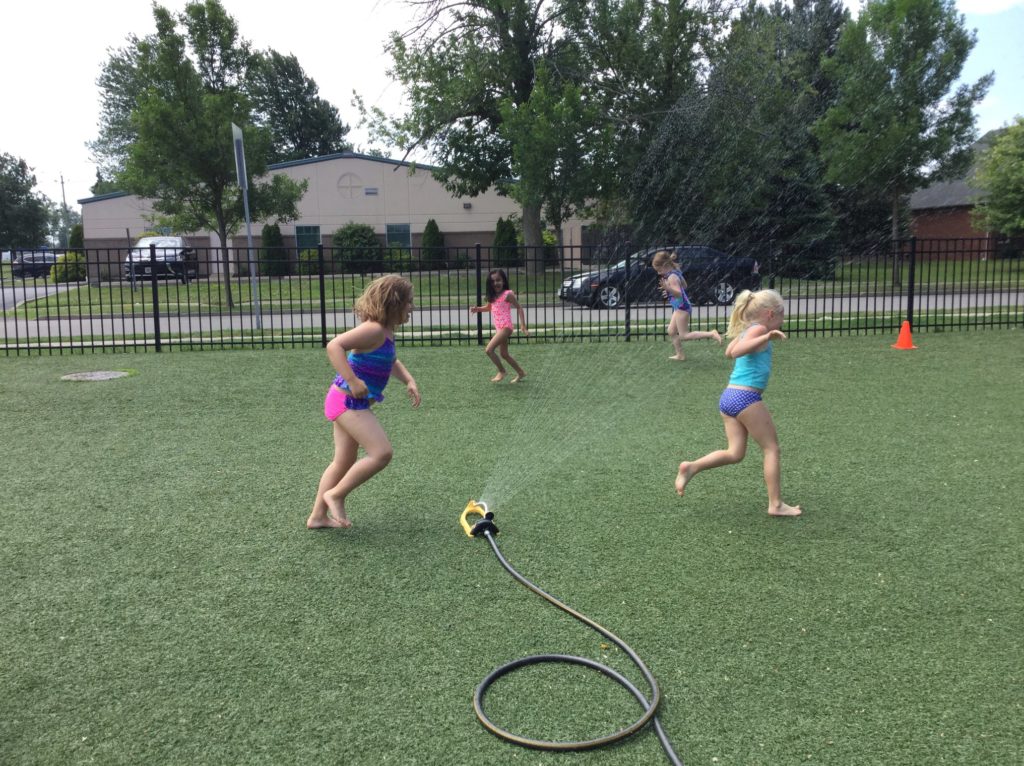
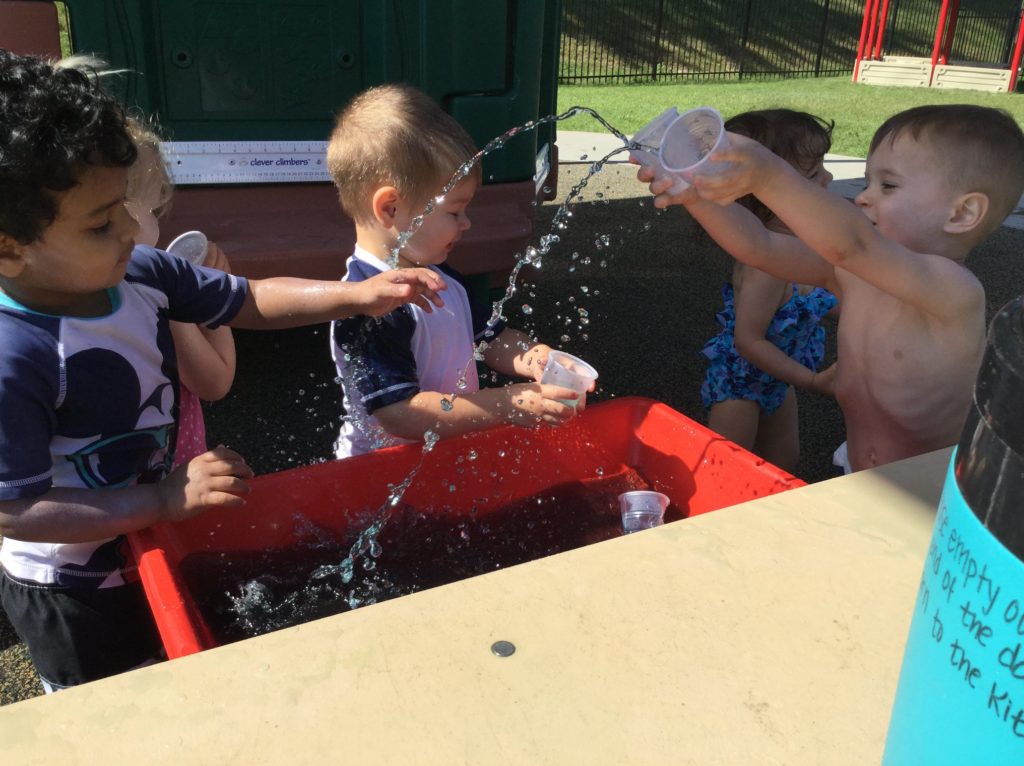
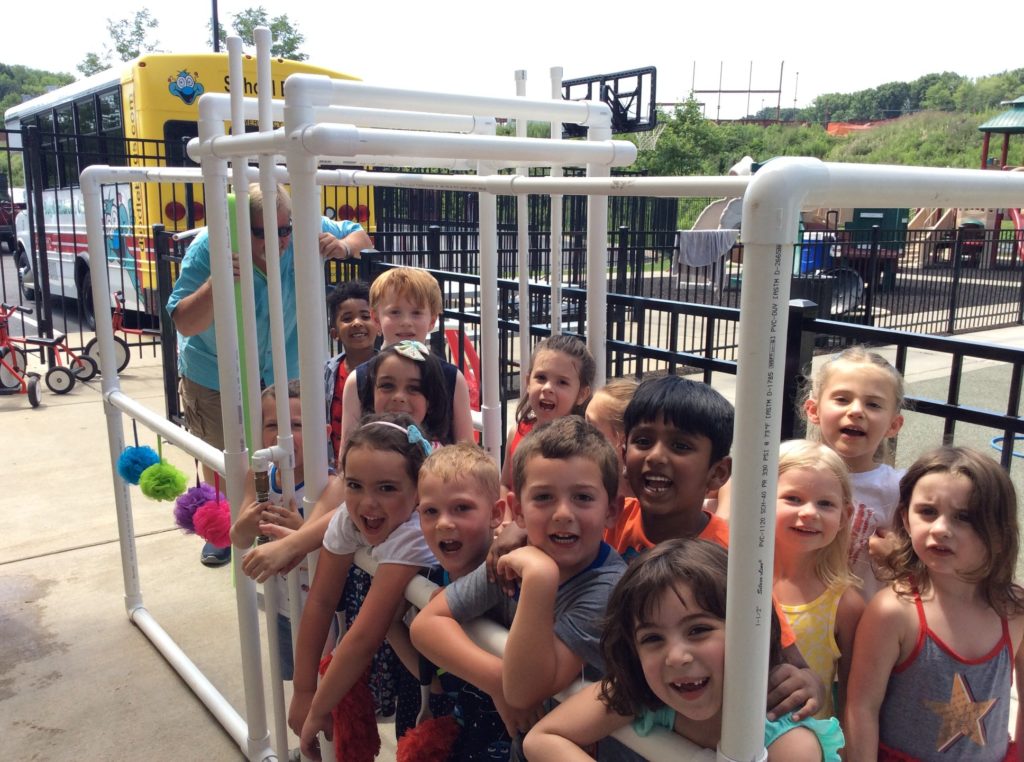
I’m not saying that you need to triangulate the mathematical equations and physics involved in catapulting a water-soaked sponge across the playground, or the backyard. I am asking you to find a moment to appreciate that children are developing important neurons in their brain as they run through the sprinkler, jump in the pool, splash in puddles, skip rocks across a pond, and even run their hands under the faucet for an extended period of time. Those neurons will lay the foundation for them to build a greater understanding of bigger concepts later in their life- like a ripple spreading from shore to shore that all started with a tiny drop. It all starts with a splash!

 1.866.668.5111
1.866.668.5111  6:30 am - 6:00 pm
6:30 am - 6:00 pm 
 Give a Happy High Five!
Give a Happy High Five!

